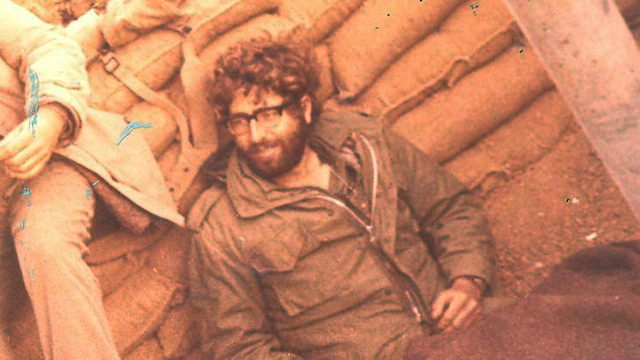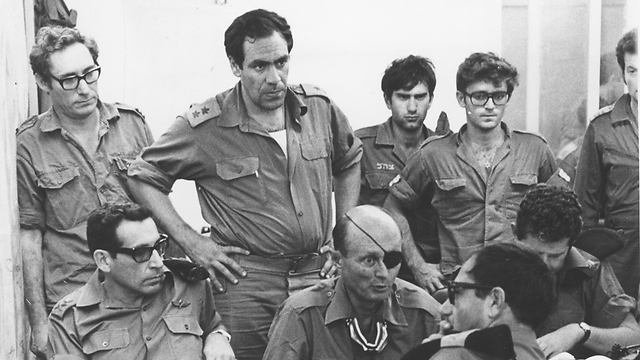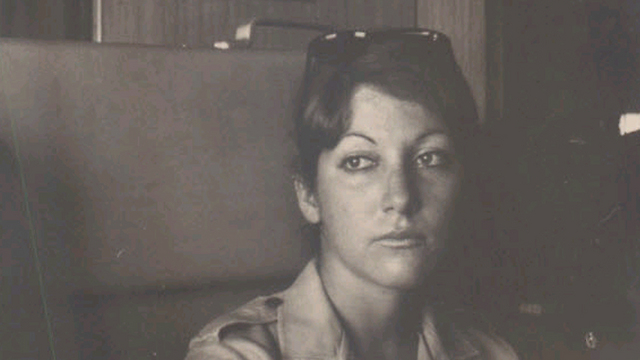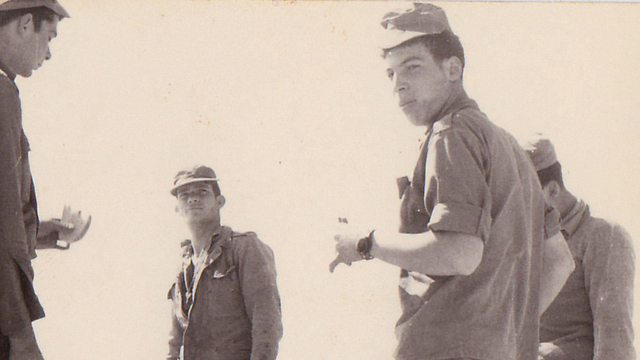
Ministers recall Yom Kippur War experiences
Young Shai Piron heard radio break fast's sanctity, officer Uri Ariel was supposed to head home, Moshe Ya'alon never dreamed of choosing army as career. Ministers of Israel's 33rd cabinet talk about their experience on October 6, 1973 ahead of war's 40th anniversary
Benjamin Netanyahu, 24 at the time
When the war broke out, I was returning from studying at MIT in the Unites States. The plane was packed with Israeli students who left everything behind to protect their homeland. Upon arrival, I joined the Sayeret Matkal (General Staff Reconnaissance Unit) reserve force that headed south to the Suez Canal area, and from there I headed up north to command a special operation.

Forty years later, to protect our home, the State of Israel, we must always be prepared to act forcefully against those who wish to harm us. Our ability to protect ourselves has always been the key to our existence and the security to our future. We are stronger today than we've ever been. We will always remember those who bravely gave their lives in that difficult war so that we could live in our country.
Prime Minister Benjamin Netanyahu was a student when the war broke out
Shai Piron, 8 at the time
Yom Kippur War, I remember every minute. I remember it was 2 pm, the first moments of embarrassment and the feeling that my parents cannot protect me because it is beyond them. I remember the radio that cut through the sanctity of the fast; the cars that took over the traditional bike trails. I remember my mother's tears and my father's tense face.
I remember nights of darkness, when I fell asleep on the carpet beside the television that broadcast talk shows with cheap jokes about Egypt and the Syrians. Sometimes, when you are young and do not understand, you understand a lot more. It sinks in you without any filters. Like that. Just as it is. You do not tell yourself stories, just pick up the heart and soul of those around you, and it hurts, without knowing you are hurting. And you cry without feeling you are crying.
There are some things that I know, and some things that I feel. I felt the Yom Kippur War, and that is why it is with me to this very day. Every year, during the Neilah prayer, when I stand before the (Torah) case as a public figure – I cry. The cry of the past blends in with today's tears. The pain of the arrogance and lack of awareness mesh up inside me, together with pain about blindness and absence, darkness and nonexistence, death and the right for the land, and right for freedom and liberty. And me? I ask for forgiveness and pray for humility and responsibility, clear vision and the love of man and land.
But there is also hope. And Faith – in the one who gives his soul in exchange for others' lives, in the ability to build, construct, fix, repair, and realize the great dream of this good land.
"P'takh lanu shaar b'ayt neilat hashaar" – Open for us a gate whenever a gate is closed.
Education Minister Shai Piron was an elementary school student when the war broke out
Tzipi Livni, 15 at the time
I first heard the words "a war broke out" from a friend, but they were said over and over again, spread by word of mouth, from neighbor to friend, from parents to children. I remember the indecision and uncertainty: What if the rumors were true? How could it be? Should we turn on the radio and desecrate this holy day?
The rumors grew louder. We turned on the radio. I remembered words like "our forces are braking" emanating from it. Worry and helplessness were evident on my parents' faces. There was genuine existential fear. The stories began coming in – some exaggerated, some gave a real and harsh image.
What I knew and heard then I only deeply comprehended at a later stage in my life. Only when I myself became a mother could I understand the look on my mother's face when she opened the door and a man in khakis was on the other side. He came looking for his son, knocked on the doors of all of his friends, looking for information about his missing child. When the battles ended it became clear he was a bereaved father. And Doron, his second son and my classmate, became a bereaved brother.
I did not think about intelligence and conspiracy then, about complacency of the people and the leadership, about what could have been prevented, about the frailty of security and its high price. But today I do. Today I know there are no clocks that can turn back the time. Judgment and leadership always have the benefit of hindsight.
The complacency, ignoring the opportunity, and the horrible price and great tragedy that were averted by those brave warriors – those who survived and those who died – should stay with us today. Not just to remind us about the threats, but also about what should not be missed: The obligation to look a few steps ahead and understand that arrogance, haughtiness and the "it's going to be alright" mantra, may have a heavy price. We paid it 40 years ago, and it is our duty to prevent it in the future.
Justice Minister Tzipi Livni was a high school student when the war broke out
Limor Livnat, 23 at the time
During the months before the war, I worked at one of Israel's embassies. I had the Seuda Mafseket (pre-fast meal) over at friends when several intelligence clerks there warned us: Tomorrow a war will break out. They did not reveal to us any further details, and it seemed they did not know the whole picture either, but a day later it became painfully clear that their intelligence was correct.
We could not estimate, or even imagine, the scope of drama that will take place, but everyone's assumption was that if things are known to us abroad, then clearly everyone knows about this in Israel, and they are making every effort to prepare.
The feeling of shock hit us hard. We could not understand how the State's leadership, administration, IDF and intelligence knew but did not prepare. Even after the war, when they began investigating the failure on the Agranat Commission – which in my opinion did not investigate the events to the full extent – and after the archives were opened, they clearly saw the intelligence was there, but the proper reasoning, interpretation and preparation, they just did not happen. They could not connect the dots for a whole picture.
It was a terrible feeling, being abroad when there is a war at home. Disconnect. Friends and family were at the front and we tried to hold on to any shred of information we heard on foreign radio and television. We heard about the war on our home, our country, in a different language and through foreign, and not always friendly, eyes.
The information came to us through the embassy and all day we were glued to the phone. We were afraid to move so that we would not miss a call from Israel. We all wanted to go home.
Yom Kippur War was the country's biggest tragedy and my own personal tragedy.
Sports and Culture Minister Limor Livnat served abroad when the war broke out
Uri Ariel, 21 at the time
I was an officer at a Rafah boot camp and we were about to head home when they informed us to stay on call. We stayed.
At noon they alerted us, and we started hearing jets in the skies. Since the Air Force does not fly on Yom Kippur, rumors that something was going on started going around the base. Shortly after we were informed there are battles – we still did not know it was war, and we were called to equip the tank division near us. In the middle of Yom Kippur, we began arming the tanks. Slowly, reservists started storming in.
Two days later, a staff company that consisted of commanders, sergeants and officers, with no recruits, was put together. There was a big mess, and we found a few half-tracks and some ammunition and machine guns and started moving. When we reached northern Sinai, we knew it was war. Two MiGs (fighter jets) attacked us, and luckily we were not hurt.
For the first time, we saw our equipment abandoned in the field and we realized this is no game. We took the APCs and drove to an artillery post. We saw a lot of abandoned equipment there too. It was easy to see they left hurriedly in order to deploy the batteries while the fighter jets hit them. The images were hard see. At a certain point, the Egyptians began to fire rounds. We jumped into ditches and miraculously no one was injured.
The following days and nights we would go on ambushes until two of our soldiers were killed. For the first time, I saw what war casualties are. Suddenly, we heard shooting from within the post and then realized that a reservist shot himself in the foot so he would be evacuated. It was a great lesson for me about the meaning of life.
Later on, we managed to fend off a combined attack by the Egyptian infantry and armor. We turned back after a while. And then I found out that two of my classmates were killed: Shimshon Shpringer, after whom our first born son is named, and Netanel, after whom our second born son is named.
May the fallen rest in peace.
Housing and Construction Minister Uri Ariel was an officer in Sinai when the war broke out
Uzi Landau, 30 at the time
I was a PhD student at MIT in the US. In the years prior to my studies, I served as a platoon commander under Uzi Eilat, and shortly as the deputy platoon commander under the late Giora Raviv. On the morning of October 6, my father phoned me and I did not answer. I do not answer calls on Yom Kippur. But the ringing persisted. I picked up the phone and on the line was a good friend. She told me they said that a war broke out on the radio and that the Arabs are attacking.
The initial feeling was that it cannot be. Impossible. We went to the synagogue and they confirmed the information. At that point everyone was certain that the IDF would emerge triumphant within two days.
As Yom Kippur ended, I called the embassy in Washington and asked to speak with Motta Gur, who was the military attaché at the time, and was a close acquaintance of mine. I left a message that I am in Boston, and that if needed – to let me know and I will be there. "There is no need right now," they replied.
Two days went by and I decided to fly to Israel. I bought a ticket, packed a light suitcase, said goodbye to my wife Naomi and my children Giora and Michal, who was only a month old at the time, and within two hours I was on a plane to New York, and from there – to Israel.
Haim, my late father, waited for me when I got off the plane. He was then a member of the Knesset's Foreign Affairs and Defense Committee. "How are things?" I asked. "Schlecht," he answered in Yiddish, "But we will get them. Your battalion is in Rephidim, waiting to cross the (Suez) canal." Father was an incorrigible optimist.
I returned to the company as an additional platoon commander right on time. Two days later, the canal crossing operation began.
Tourism Minister Uzi Landau was a student in Boston when the war broke out
Gideon Sa'ar, 7 at the time
When the sirens were heard, I was not yet seven. I lived with my family in Kibbutz Sde Boker and throughout the entire war I mainly remember the obituaries in the papers. It is hard to remember who showed me this one specific obituary, maybe it was my teacher, but I looked at an obituary of a soldier named Gideon. I remember the situation and I remember it was very hard to deal with.
My father, Shmuel, served as a physician in an artillery battalion near the Suez Canal. We were very worried after we had not heard from him for two weeks. One day, my great-grandmother Esther told us she saw him on television. We got the images from the Broadcasting Authority, and indeed it was my father. We calmed down.
Interior Minister Gideon Sa'ar was an elementary school student when the war broke out.
Moshe Ya'alon, 23 at the time
Yom Kippur War changed the course of my life. I never thought of the army as a career. I never planned on being an officer, let alone the chief of staff. At 23, my ambitions were elsewhere. But life brings about molding experiences that affect the rest of the road. The Yom Kippur War was my molding experience.
Just as I found it hard to believe a war broke out when I first heard the message, I could not believe that the State of Israel could have brought upon itself, on its own, such a difficult situation. Arrogance, euphoria, carelessness, and complacency that rooted within the country and among its decision makers after the Six Day War were the seeds of failure that brought the Yom Kippur War upon us.
Like any other Israeli citizen those days, I too cannot forget the moments of helplessness that accompanied me; the sense of existential threat that was in the air and the fear that we stand before the destruction of the Third Temple; the overwhelming casualties and prisoners of war; the desperate calls for help; the friends from school and the youth movement and those who walked beside me at boot camp and entire army service, and died in the war. And the lack of trust that came about towards the Israeli leadership and military.

That was the turning point for me. During the long days of fighting, as a reservist paratrooper, the distress was difficult. We found ourselves the first to cross the Suez Canal, and then fighting outposts along the water line and in the city of Suez itself. Then, in those days, I made a decision: I could not be at peace with myself if I had finished my reserve duty during the war and returned to civilian life without contributing to the rehabilitation and rebuilding of the IDF, even if it means being in uniform for a short while.
I decided to go to officers' training. I signed up for a year of army service. The rest is history.
Defense Minister Moshe Ya'alon was a reservist when the war broke out
Silvan Shalom, 15 at the time
I was a 15-year-old boy in Beersheba and lived in a neighborhood that was close to the main road that led south. On Yom Kippur eve, we were on our way home after prayer, and we saw a convoy of semi-trailers carrying tanks heading south. It was strange.
On the next day, on Yom Kippur, it was already clear that something is happening but we did not know what. I remember that a group of people walked into the synagogue, whispered in the ears of some of the worshippers, who quickly left and never came back to prayer. Around noon, a siren was heard. The synagogues emptied, and so did the streets. The war had begun. Beersheba never looked that way before on Yom Kippur. Cars loaded with men made their way south and there was a sense of uncertainty.
I spent the days of war in a gas station, handing out beverages and cakes to soldiers making their way en masse towards the front. We stood there for hours, giving the soldiers whatever we could.
The war ended October 24. Forty years have passed since that difficult war and there are many lessons from it. Israel has greatly changed since the Yom Kippur War. It can be understood today the importance of strategic depth to prevent war and the importance of peace treaties to prevent war, bloodshed and grief.
Minister of Energy and Water, Development of the Negev and the Galilee and Regional Development Silvan Shalom was a high school student when the war broke out.
Assembly and production: Naama Gibori
- Receive Ynetnews updates directly to your desktop














